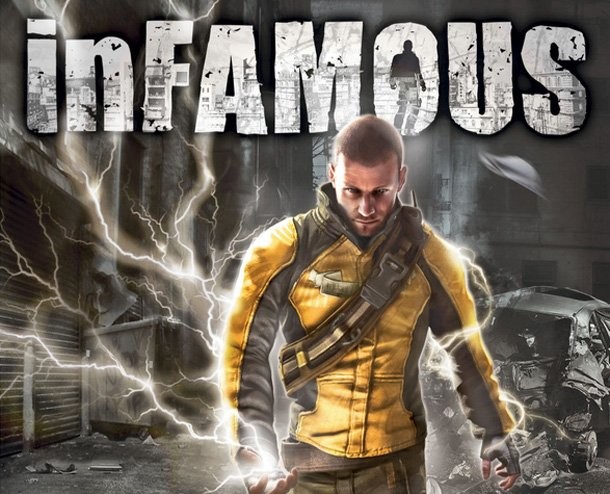The Name Game - The Process, Power, & Pitfalls of Video Game Names
“It’s really not about the title, it’s about what’s in it,” says Andrew Hawn, vice president and consumer strategist for Iconoculture. Gamers know this to be true, but that doesn’t make a game’s title any less important. In fact, it’s something that publishers and developers do not take lightly at all. Getting off on the right foot and defining the game experience to potential new fans– especially if it’s a new IP– is crucial to a new product’s success, and a game’s title is a big part of that process. A name can be great, good, or just average, but it simply cannot be bad. At least not if the name has been properly scrutinized by all parties involved. “That’s frankly an easy place to hide to say, ‘Well, the title doesn’t matter. Those who know the game will buy the game no matter what it’s called,’” explains Hawn. “I think you’re shooting yourself in the foot by not appealing to a broader set of consumer motivators around what the experience is likely to be.”
“It’s not scientific by any stretch,” admits Jeff Reese, Sony’s director of software marketing. In his position, Reese has a hand in every title that comes out from the company. Names start with developers, who naturally have a creative sense of their own project and what they want it to mean to gamers. From the codenames and early dead ends, however, a clearer idea starts to emerge as the game’s story, prime features, genre, and broader marketing and branding plan mold the moniker. “The whole process is calibration,” Reese tells us. “You are constantly culling down the list. ‘There’s no such thing as a bad name’ is kind of the thesis we go from, and as you go down the process you realize there are such things as bad names, but you don’t want to stop any kind of creativity.”
Coming up with a name that everyone likes is just the beginning of the
process. Sometimes legal issues come into play. Reese told us that
LittleBigPlanet originally was named something else, but had to be
changed due to trademark issues. Other times a subtitle is necessary to
differentiate the product from another game in the same series on
another system. God of War: Chains of Olympus is an example of this.
Sometimes the name has to avoid sounding like something else or
conjuring up the wrong imagery. “It’s really important to imbed deeply
in the consumer’s mind at first glance,” explains Reese. “To do that
you have to break through a very cluttered environment. It’s an
important part of the process to see what’s been successful, learn from
that, but also make sure that when you come out and announce that name,
you don’t want someone trying to say, ‘Well, it sounds a lot like X
competitor.’” Finally, Reese tells us that work sometimes has to
continue on a name even after it’s been made public. He told us that PR
and marketing had to go to work on behalf of LocoRoco and Patapon in
order to get these games across due to their non-obvious names.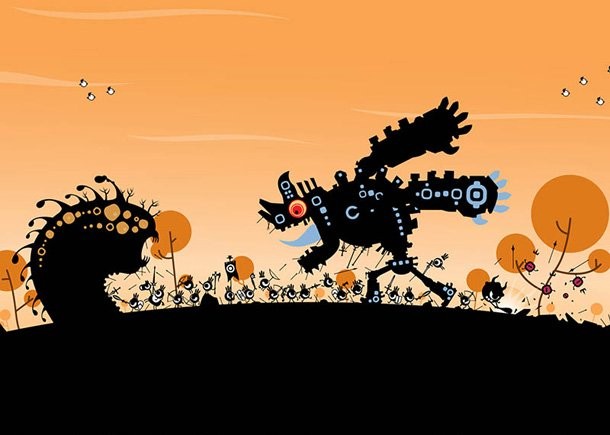
While catching a gamer’s eye as they consider spending their money on a title they’ve never heard of may be one component of effectively naming a video game, the larger goal is to create an overall brand experience that you can trust now and in the future. Iconoculture’s Andrew Hawn– whose clients include big-name publishers and developers in the industry, almost all the movie studios, and numerous television studios and consumer electronics companies (Hawn would not give specific names for confidentiality reasons) – says that trust, or the lack of it, is a problem with video game names.
“The whole industry has had sequelitis forever, and as the industry grows up it’s gotta think long and hard how it names things. This is true of the consumer electronics industry as well. Everything coming out of Panasonic is a disaster.” Hawn naturally points to Apple and the emotional tie its fans have with its products as the road to follow, where quality is (usually) in synch with expectation.
Trust isn’t something that video games have always had. Until recently anything named Star Wars, mostly in the ‘90s, was an abuse to fans. “The video game industry has to realize they are playing in the big leagues right now, and you can’t do that.”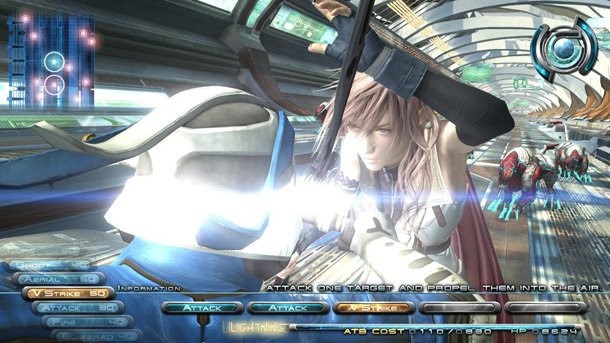
We asked Hawn about the Final Fantasy brand, which developer/publisher Square Enix affixes to a number of games in different genres and varying in quality, and whether it could be hurt by this inconsistency. “It is a universe and I think there’s this core group of people that’ll buy anything [with the name Final Fantasy], but I think it’s a detriment.”
Apart from those fans that would buy your title anyway, no matter how incomprehensible or awful its name, mass-market friendly titles are something that companies must be more conscious of as more non-hardcore gamers head into stores looking for stuff to buy. “The gaming industry will say things like, ‘We are bigger than the movie industry,’” says Hawn, “but you can’t put up an eye chart of a name of a game and expect people to know what it’s going to be. I’m not saying you should name it something obvious or dumb. I think the simpler you keep it the better. The name shouldn’t get in the way.”
We asked consumer expert Andrew Hawn his professional opinion of some video game names.
Call of Duty
“It’s this call to arms. This almost historic, nostalgic kind of approach to what you didn’t live through. That’s especially effective for millennials– generation Y, or under-30 year olds. They are one of the first generations that can be deeply nostalgic about a time that they never lived through because they have so much access to media and their approach to media consumption.
“One of the big trends in video game naming is the use of the possessive. Band of Brothers, Company of Heroes, Army of Two, Blank of Blank. It’s this more formal way of getting consumers involved emotionally in the possibilities and aspirational approach to what this video game might mean to them. Call of Duty is a perfect example, this sort of call to action– come and get involved. It’s probably been overplayed to such a degree that it’s diluted itself.”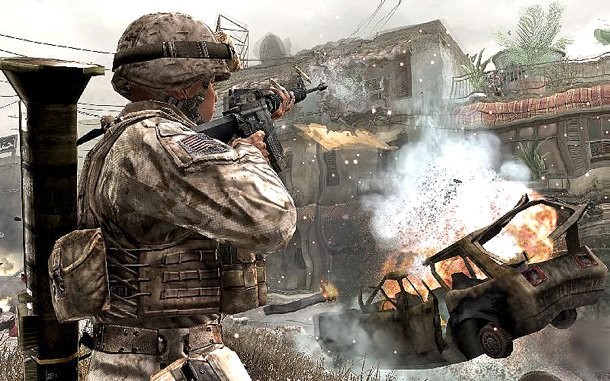
Psychonauts
“Psychonauts is a really fantastic game. [The main character] is a sailor of people’s psyches– it totally doesn’t translate at all to regular human beings. You have no frame of reference to what it’s going to be. What a great game that was, but I think a lot of its [commercial troubles] had to do with the marketing of it. It had brand legacy that it couldn’t activate.”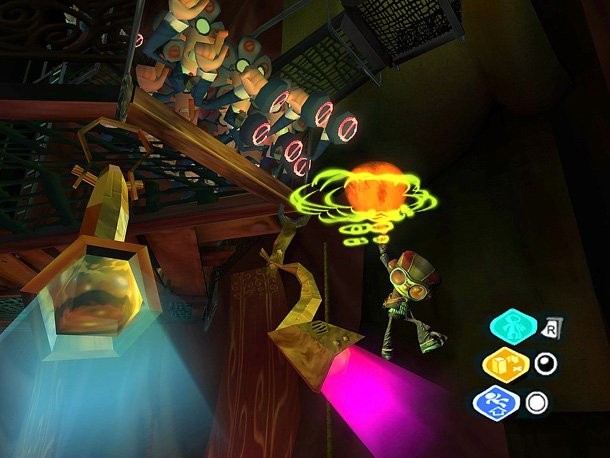
DiRT, HAWX, flOw or Any Other Acronym Or Weird Use of Capital Letters
“I think the acronym game is a pretty funny one. I think there have been plenty of acronym-driven games that don’t really mean anything to anybody other than the programmers. To gain popular media/cultural relevance, I don’t recommend any of those groups. That’s all I have to say on that.”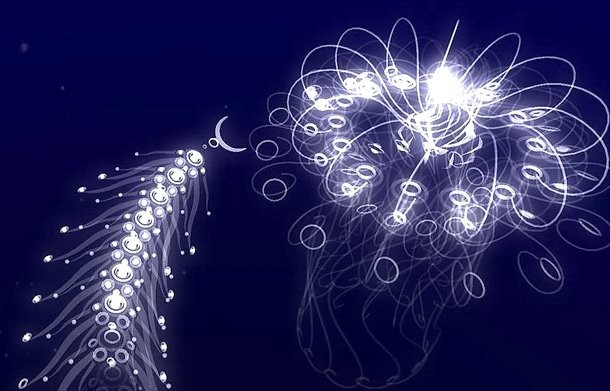
Mobile Suit Gundam: Gundam vs. Zeta Gundam
“To the Gundam fan, it doesn’t really matter what it’s called, they are going to buy it. On the other hand, it’s something to point at in the store and laugh at if you don’t know.”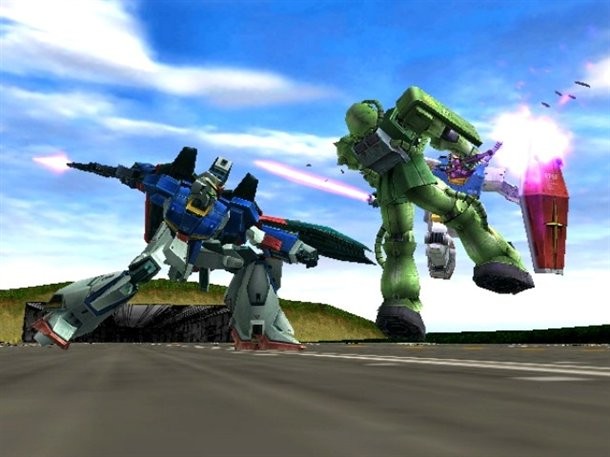
THE S--- LIST
Here is a very abbreviated list of some bad video game names. Want to create your
own hilarity? Check out this online moniker generator: http://www.norefuge.net/vgng/vgng.html
• Infinite Undiscovery
• Corpse Killer
• Awesome Possum Kicks Dr. Machino’s Butt
• Wild Woody
• Irritating Stick
• Twin Eagle: Revenge
• Tongue of the Fatman
• .hack//G.U. Vol. 2: Reminisce
• Viking: Battle for Asgard
• Hot Pixl
• Fuzion Frenzy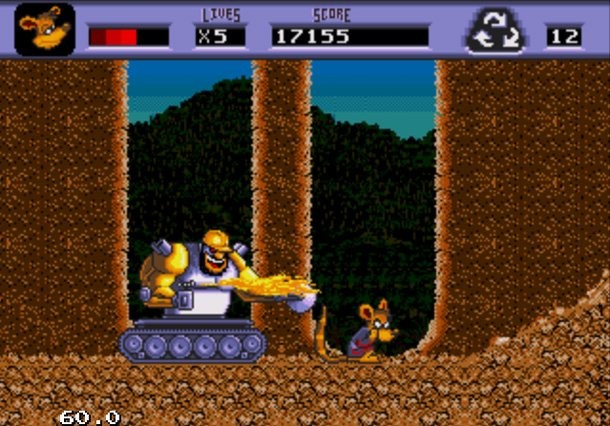
The gaming industry will say things like, ‘We are bigger than the movie industry,’ but you can’t put up an eye chart of a name of a game and expect people to know what it’s going to be.
– Andrew Hawn, vice president and consumer strategist for consumer researchers Iconoculture
A Close Call
It’s not uncommon for a game to see a dramatic change in its name pretty late in the process. Last year, prior to Game Informer’s cover story on Eidos’ Kane & Lynch: Dead Men, word came down the wire from Eidos’ European division that the game would be called Bad Bad Men. While that might have played effectively overseas, the bizarre connotations of the phrase in North America meant it wouldn’t be a great global choice. Only days before GI’s cover story went to the printers, the old name was scrapped in order to more faithfully convey the essence of the game in all regions.

Get the Game Informer Print Edition!
Explore your favorite games in premium print format, delivered to your door.
- 10 issues per year
- Only $4.80 per issue
- Full digital magazine archive access
- Since 1991
